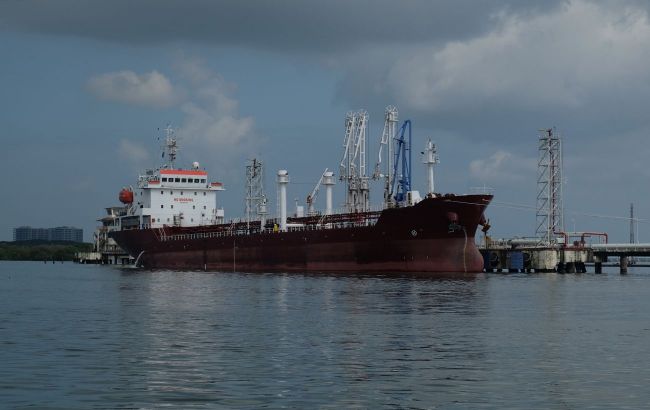Ukraine's attacks push Russia's oil exports to the limit, Bloomberg reports
 Illustrative photo: Russia is forced to increase crude oil exports (Getty Images)
Illustrative photo: Russia is forced to increase crude oil exports (Getty Images)
Russia's seaborne oil exports (by tankers) have remained near their highest level in the past 16 months over the past four weeks. Successful Ukrainian attacks on Russian oil refineries caused this effect, Bloomberg reports.
According to the outlet, the average volume of oil shipments from Russian ports in the four weeks leading up to October 5 reached 3.57 million barrels per day — only 80,000 barrels below the peak recorded in May 2024.
As a result of Ukrainian strikes, Russia’s oil refining fell below 5 million barrels per day — the lowest since April 2022. Meanwhile, oil exports have increased by about 500,000 barrels per day since mid-August.
However, Bloomberg notes that Russia is unlikely to expand shipments further, as spare port capacity is nearly exhausted. The two main ports — Primorsk (Baltic Sea) and Novorossiysk (Black Sea) — are operating almost at full capacity. The third port, Ust-Luga, could theoretically export more, but since the start of the year, its shipments have remained below the October 2024 peaks. In total, the spare capacity of the three ports amounts to only 165,000–265,000 barrels per day.
Meanwhile, Europe is tightening control over Russian tankers. In particular, the European Union is preparing its 19th package of sanctions against Russia, which will target the country's shadow fleet, restrict refineries, traders, and petrochemical companies, including those from China, and may impose tariffs on Russian pipeline oil.
Attack on the Kirishi refinery
On the night of October 4, Ukrainian defenders struck the Kirishi refinery located in the Leningrad region.
The targets were the LAB-LABS unit (used for producing linear alkylbenzenes and linear alkyl aromatic sulfonates) and the ELOU-AVT-6 unit (for dehydration, desalting, and primary oil processing).
Later, Reuters reported that the Kirishi refinery halted operations at its largest processing unit following the attack.

